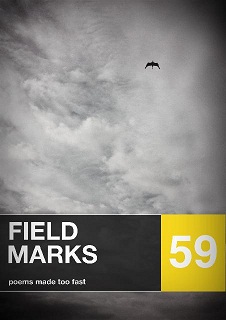His first wife was a private detective, and he had a tendency to undermine his own best wishes. It would seem that things were doomed from the start. Their son, by the time I met him, had developed a healthy sense of disinterest, but then again this was high school. Long, stringy hair, in Cobain style, ten years removed: even down to the holey jeans, sans cardigan or hospital gown. He did his work, he passed his classes, but there wasn’t any care for it. In the best moments you got the sense that he was curious about things, that in some future he might have a chair where he’d sit and read a book, or even write one. He might just as likely never pick one up after graduation. He would graduate though; he owed his dad that much: a diploma, a photograph, even a real smile and the same shy slouch on a sunny day in May.
I never knew his mother, never met a private investigator, not that I’m aware of anyway. They spoke of her rarely. She wasn’t dead, but she was more of a ghost than a physical presence. Someone they both knew, someone they shared, who was no longer a daily part of their lives, but you got the feeling that she moved through their memories, their imaginations, taking stock of their shared deficiencies but loving them in spite of them, most of the time. Then again she was gone; she left them, these men who barely needed speech, alone with their silence, with their television, headphones, and disappointment. And they had their cats: Tom, Whitey, and the one with the limp. These would never replace the woman that connected them, but they were faithful, they were quiet, and they were seldom disappointed.
None of this explains how it happened: how he had his chance to become a household name, his fifteen minutes. The east/west commute was brutal, only thirty miles, but the sun both ways. Mostly he took the bus. On this particular Tuesday he was early. His general psychology class didn’t begin until 10:00 am, but he was at the bus stop and on a bus at 8:15. He sat down in the middle of the bus, the sixth row from the front on the right side. He liked to be able to see out the south window on the way into the city. He enjoyed the way the landscape was so predictable, how a slight rise and fall here and there laid out where farmers would settle, how they would rotate crops, how roads would be charted and someday where housing tracts would be settled on and quickly developed, finally linking the larger metropolis with a series of what used to small towns. He knew each rise of a hill, each bend of country roads, and could mark the early autumn changes in the old growth trees.
When the car in front of the bus suddenly slowed, jerked, and rolled, he was looking at a familiar man-made mini-lake used by the college’s water-ski team. He ripped out his ear buds and gripped the seat back in front of him tightly, preparing for whatever impact or slide might occur. When the tires hit the shoulder and the brakes were applied, the slide into the deep ditch was inevitable. Most of its passengers were oblivious, but not Travis. By the time the bus came to a dusty stop on its right side, he was already on his feet and looking to help. By the time those who were sure of themselves were on their cell phones calling 911, he was out the emergency exit and running to the small blue car to check on its occupants.
She was unconscious when he arrived. There was not a lot of blood but enough that he was scared to move her. Her seat belt had kept her in the small car while it rolled and skidded, resting finally right side up and still purring. The windshield was gone, as was the driver. He felt the girl’s neck for a pulse, steady. He looked in the distance for her driver, another quickening of his heart and he was running again. Twenty yards south, slumped and unmoving, the driver was waiting to be saved. By this time the survivors were gathering and waiting for the first responders to make the scene, but Travis was on his knees palpitating the man’s chest counting out a rhythm as if he was still listening to a favorite song.
That evening on the news no one’s crying family members were interviewed. No memorial services were celebrated days later. There would be no roadside shrine erected in this spot. The odd image of a young man sitting on the side of the road with his ear buds back in his ears was multiplied through the papers and broadcast on the region’s various nightly newscasts, eventually reaching the television of his mother in a distant town and prompting a nervous voicemail message. Just like at the scene, Travis declined to be interviewed. This above all things would make his father proud.
